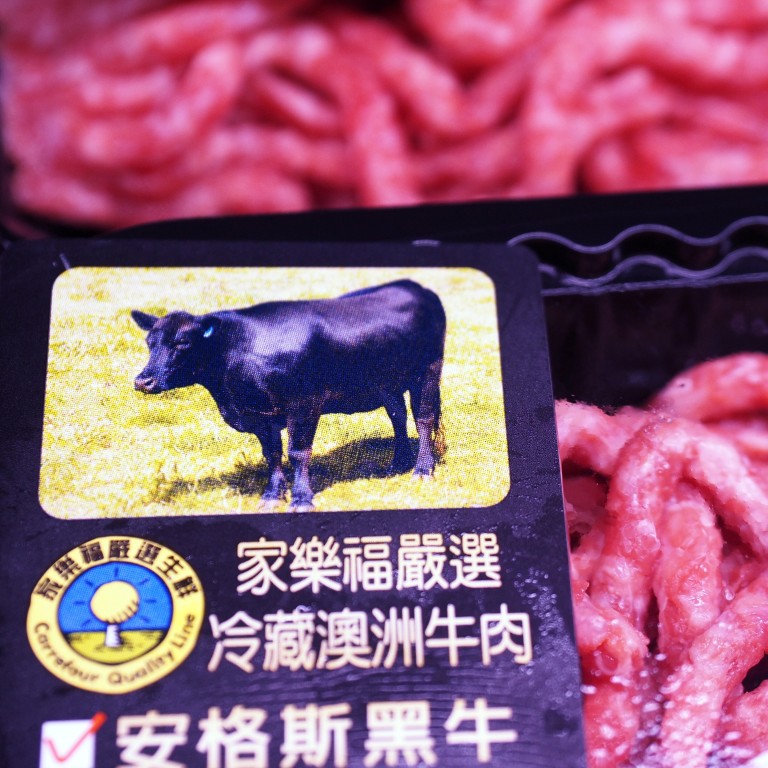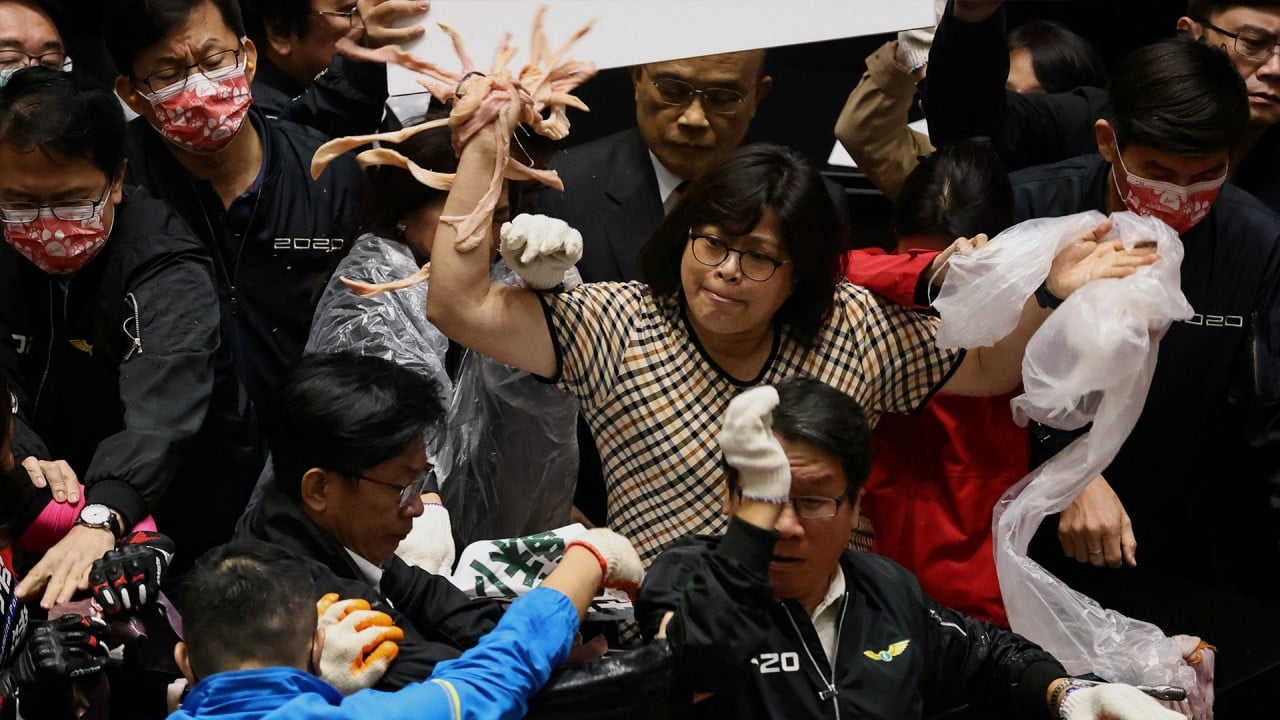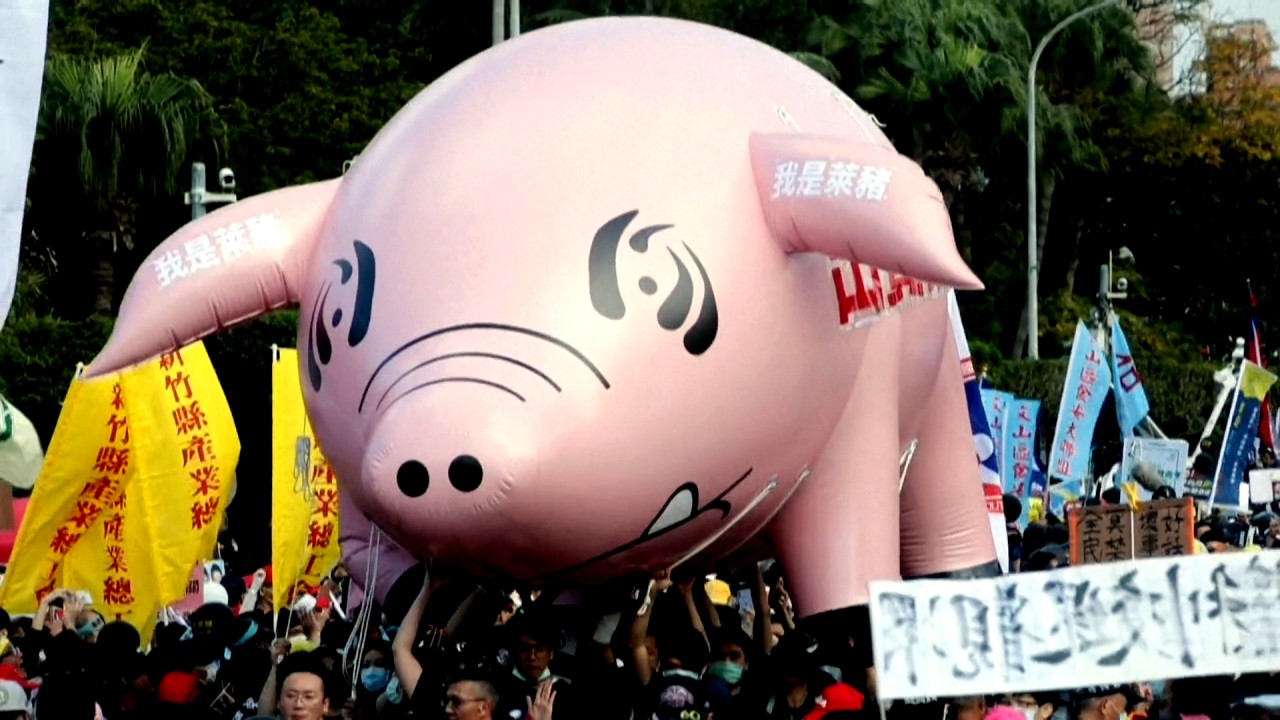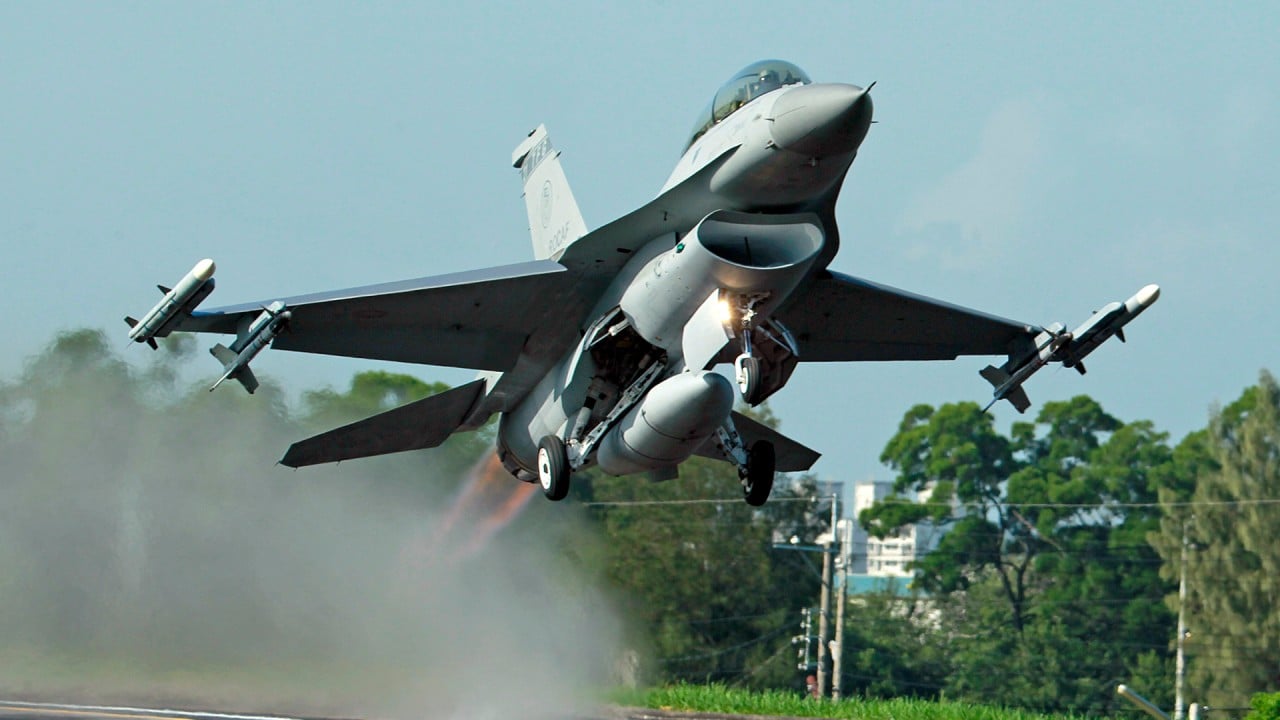
Taiwan’s Tsai Ing-wen faces referendum over lifting ban on US ractopamine pork
- Opposition KMT has the public backing needed for a poll, expected to take place by August 28
- Decision to lift ban on imported meat containing the growth and leanness agent caused uproar, but ministers play down the claimed health risk
It could also harm the prospects of Tsai’s independence-leaning Democratic Progressive Party (DPP) in next year’s local government elections, observers have said.
Since August’s announcement, main opposition party the Kuomintang (KMT) has campaigned to hold a referendum about it, and it has gathered enough endorsements to mean the self-ruled island’s electoral commission will this month announce one, expected to take place by August 28.

02:04
Pig guts fly in Taiwan parliament protest over easing of restrictions on US pork imports
The DPP, meanwhile, voted in December in the Taiwanese legislature to back Tsai’s decision.
The issue “has allowed the KMT to generate an anti-government campaign by promoting the referendum”, Shih Cheng-feng, a political-science professor at National Dong Hwa University in eastern Taiwan, said.
Michael You Ying-lung, chairman of the Taiwanese Public Opinion Foundation and a founding member of the DPP, warned that the DPP could be undermined by the pork issue in 2022’s local government elections.

01:48
Thousands of protesters in Taiwan rally against imports of US pork with controversial additive
In an opinion poll last month by You’s foundation, Tsai’s approval rating slipped to 51 per cent, from 66 per cent in August, while her disapproval rating rose to 37 per cent from August’s 22 per cent.
The same survey found 66 per cent of respondents opposed the pork decision and 28 per cent supported it, while 54 per cent said they would back the KMT’s call for a referendum, against 36 per cent who would not.
“The survey showed Tsai and her government are unable to convince the public,” You said.
In the 2018 local elections, the DPP suffered a humiliating defeat, winning only six of the 22 cities and counties to the KMT’s 15, with one taken by an independent.
Use of ractopamine in meat is banned in 160 countries, including European Union states, mainland China and Russia. The agent is suspected to cause health effects such as high blood pressure.
But it is deemed safe for human consumption in 27 countries – including Japan, Singapore, South Korea and the United States – subject to limits on the amount of the drug allowed in the tissues of pigs and cattle, set by the Codex Alimentarius Commission, the United Nations food standards body.
US rallies behind Taiwan after island loses more Pacific allies
Tsai was one of the vocal opponents in 2009 when the then president Ma Ying-jeou, of the KMT, tried to lift Taiwan’s ban on imports of US beef from cattle fed with ractopamine. Videos of her leading demonstrations and accusing Ma of selling out the island’s interests to the US have been recycled by protesters.
“If it is safe, why have many other countries banned meat from livestock fed with ractopamine?” said 36-year-old housewife Chang Yu-hsiu, who joined November’s protest. “And why had Tsai and her party strongly opposed such imports years ago when the Kuomintang tried to do it?”
Chang said she opposed US pork imports over health concerns, especially given that her husband has cardiovascular disease.
Agriculture Minister Chen Chi-chung has argued that the threat to the public is negligible, given the UN-defined limits on ractopamine and the fact that Taiwan produces 90 per cent of its pork domestically.
“It would require a person to consume 33 pork ribs weighing 200kg [441lbs] per day continuously for five to 10 years before exceeding the Codex acceptable level,” he said.

02:28
Washington’s US$1.8 billion arms sale to Taiwan is first weapons deal of its kind in over 40 years
Chen said that American products accounted for only 13 per cent of the 10 per cent of Taiwan’s pork that is imported, and that only 22 per cent of that imported US pork used ractopamine. This meant that only 0.3 per cent of pork in the Taiwanese market was affected.
Citing local regulations, 15 regional authorities controlled by the KMT have threatened zero tolerance of ractopamine in the imported US pork, although the Taipei government has insisted their actions must be in line with its new rules.
John Deng, a representative of Taiwan’s Trade Negotiation Office, said opening pork and beef markets was in line with the island’s trade strategy.
“The US used to question us for not opening our market for pork and beef,” he said. “Lifting the ban would help facilitate our trade talks with the US in the future.”
Taiwan is seeking to resume talks to pave the way for a free-trade pact with the US, which have been paused since 2016.
Tsai has said Taiwan must strike trade agreements because of its reliance on exports.

